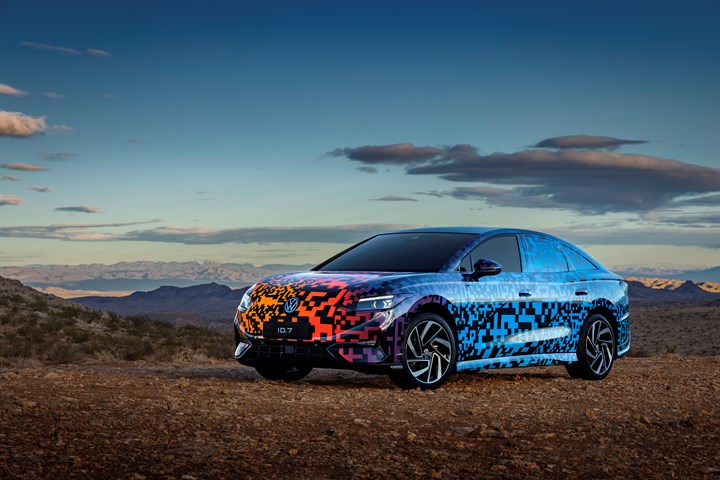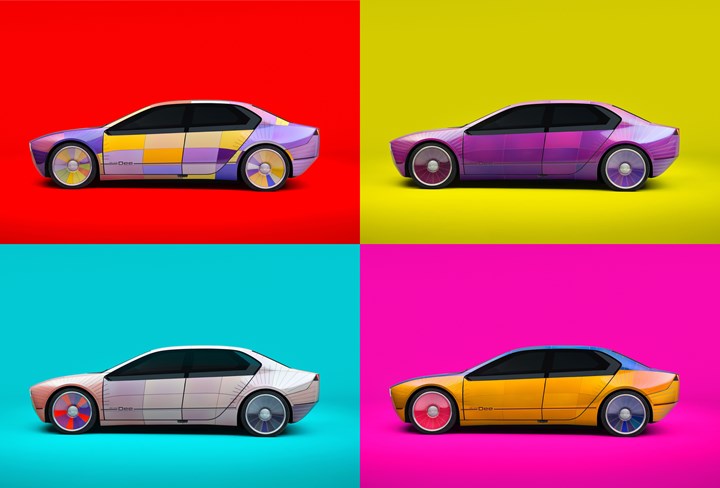
The VW ID.7. Differences in color are achieved by using electroluminescent paint. In this case, the exterior pattern is meant to camouflage surfaces. Although this electric vehicle will go into production, the paint scheme—which consists of 40 layers of paint—won’t.
Photo Credit: VW
OEMs typically put some camouflage on vehicles that have yet to be officially introduced — camo that can range from attached pieces of vinyl to elaborate baroque designs painted on the body panels. The objective is to disguise what the final product will look like. While the vinyl sheets certainly break up the lines of the vehicle, the geometric shapes on the surface can “confuse” cameras such that the spy photographers don’t get an accurate rendering.
At the recent CES expo in Las Vegas, Volkswagen wanted to reveal its forthcoming ID.7 electric sedan without giving too much away before the official introduction in Q2 2023.
So it went for the paint approach.
In keeping with the high-tech, digital nature of CES, the VW camouflage designers didn’t go for swirls or blobs but cubes resembling QR codes.
And they took it even further.
The ID.7’s surface is covered with 40 layers of paint. Some of the areas are electrically conductive. Others insulators.
As a result, 22 sections of the vehicle can be illuminated and shine through the clear coat. The electroluminescence allows for those areas to have different colors.
And VW points out that if the surface of the ID.7 is connected to a sound system, it is possible to have a rhythmic change of colors.
Of course, this is a show car. There is a zero likelihood that any VW—not even an EV that is going to be position at the top of the OEM’s lineup — will have 40 coats of paint.

BMW has shown E Ink technology before—but in black and white. For the i Vision Dee (and “Dee” stands for “digital emotional experience”) as many as 32 colors can be displayed on the film wrapped surface.
Photo Credit: BMW
“Paper” Rather Than Paint
Meanwhile, another German OEM took another approach with the exterior of the vehicle that it introduced at CES:
The BMW i Vision Dee has an exterior that is covered with E Ink Prism 3, a film material that developer E Ink refers to as “digital paper.”
According to a BMW spokesman, the approach to the vehicle, were it to go into production, would be to produce and assemble the body panels in the conventional way then instead of painting it, wrapping it with the film.
The film was laser cut in order to allow it to conform to the vehicle surface.
The display surface on the vehicle is divided into 240 segments, each of which can be individually controlled.
Up to 32 colors can be displayed.
E Ink points out that there is a low power draw from the display: once a color (or colors) is displayed there is no additional electricity needed until the display is updated.


.jpg;width=70;height=70;mode=crop)













